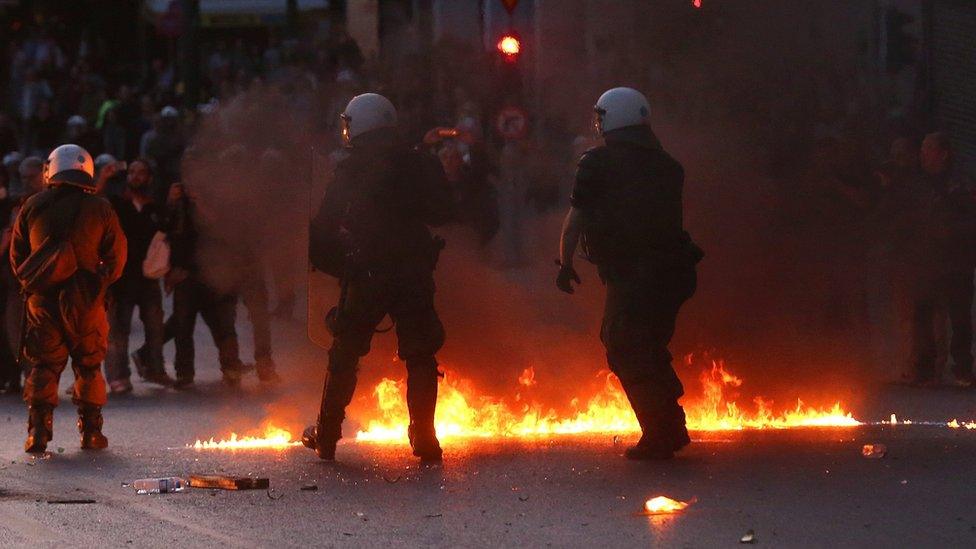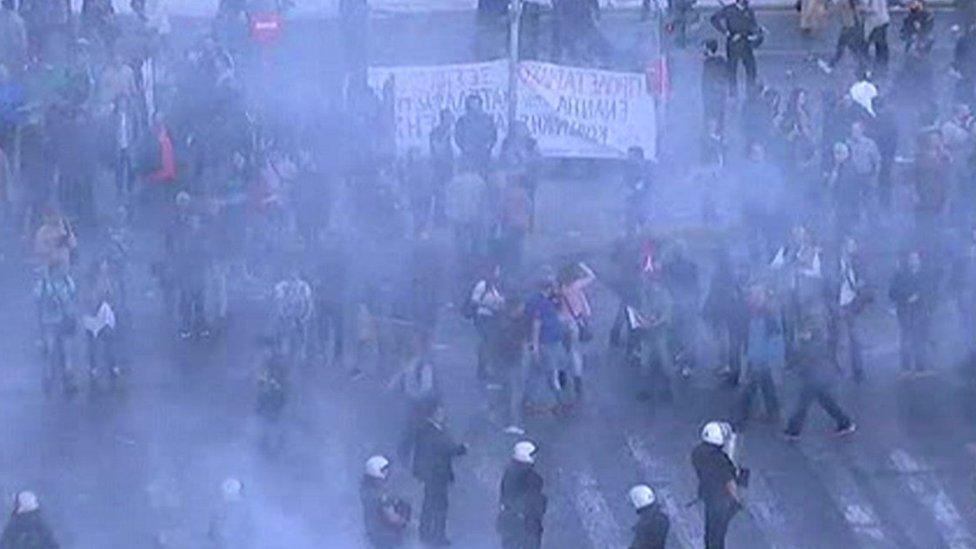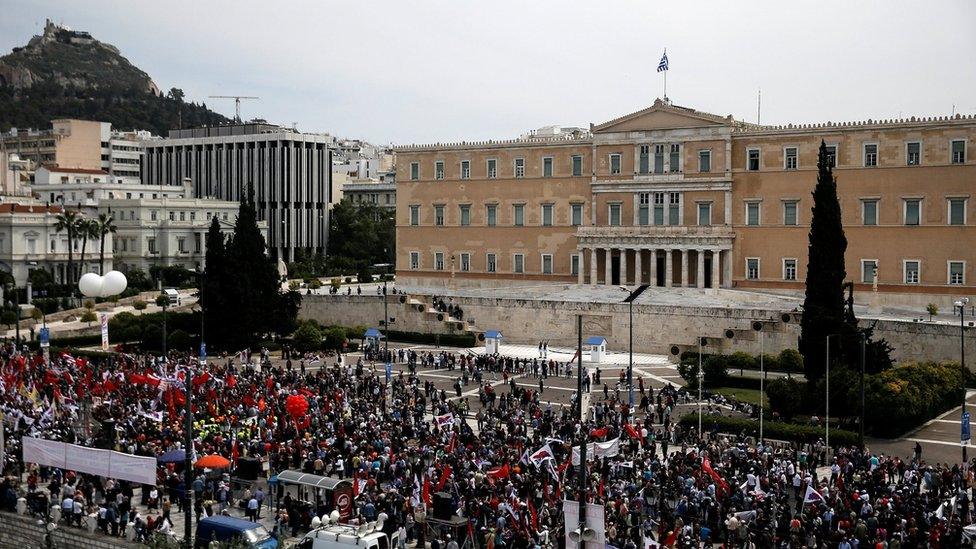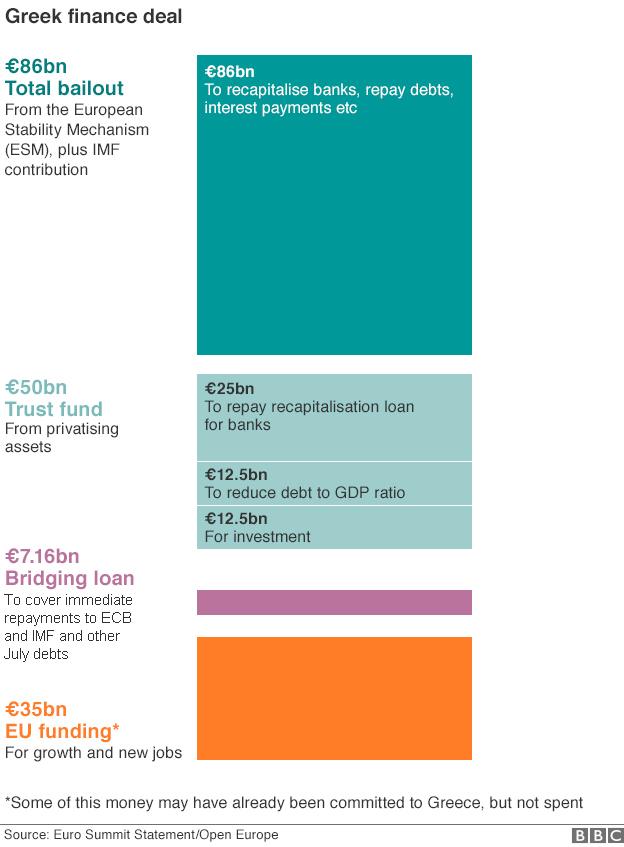Protests in Greece ahead of vote on pension and tax change
- Published

The protests were mostly peaceful but there were sporadic clashes
Protesters in Greece have hurled petrol bombs at police who responded with tear gas outside the parliament in Athens.
They were protesting ahead of a vote on further austerity measures in return for more international bailout money.
Greece has been unable to unlock the next loan instalment of €5bn (£4bn) after clashing with its creditors over the need for more reforms.
An extraordinary meeting of the Eurogroup, external is being held on Monday amid fears of a new crisis in the eurozone.
Thousands turned out for the mostly peaceful protest in Athens, while more turned out in Greece's second largest city Thessaloniki.

Police fired tear gas to disperse the protesters

Unions say the reforms are a "nail in the coffin" for Greeks
Greece agreed to a third rescue package worth €86bn (£60bn; $94bn) last year.
There are worries it may default on €3.5bn in debt payments due in July if an agreement is not reached soon.
The International Monetary Fund and other European partners are demanding that Greece implement further austerity measures to generate nearly €4bn in additional savings - contingency money in case Greece misses future budget targets.
Eurogroup ministers from countries which use the euro will assess "a comprehensive package of policy reforms as well as the sustainability of Greece's public debt", a statement says.
"Both elements need to be in place in order to finalise the programme's first review and unlock further financial assistance to Greece."
Nail in the coffin
Unions have said the proposed overhaul of the pensions system and rises in social security contributions are designed to win favour with eurozone finance ministers.
Greece's largest labour union, the private sector GSEE, said the changes, were the "last nail in the coffin" for workers and pensioners.
But Prime Minister Alexis Tsiprias said the reforms were essential, telling parliament "the system requires root and branch reform that previous governments have not dared to undertake", according to the AFP agency.
The nationwide strikes are the fourth to be called since Mr Tsipras's government won re-election after organising a referendum on the country's bailout.
Mr Tsipras was elected initially on an anti-austerity ticket but later signed up to Greece's third international bailout since 2010. He has a thin majority with 153 MPs in the 300-seat parliament.
Last summer, the crisis peaked when Athens defaulted on its debt payments and raised the spectre of an exit from the eurozone.
Greece is already looking to implement spending cuts that will amount to 3% of the country's gross domestic product or €5.4bn euros by 2018.
Debt repayment
